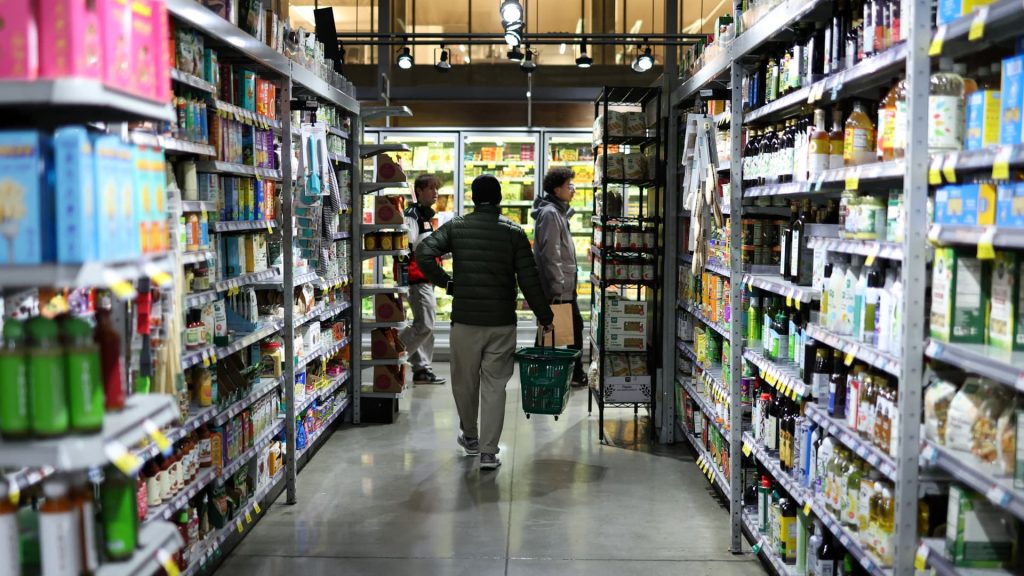Consumers are certain to face higher sticker prices as businesses prepare to pass on rising costs from tariffs onto buyers, according to EY-Parthenon chief economist Gregory Daco.
In an EY survey of 4,000 executives, nearly half said that they were willing to pass on two-thirds of the added costs from tariffs onto their customers. More than 3 in 10 participants were willing to take it a step further and pass over 90% of the additional expense to shoppers, the poll found.
The observations from the executives come as President Donald Trump’s 25% tariffs on Canada and Mexico took effect on Tuesday, along with an additional 10% duty on imports from China.
Target CEO Brian Cornell recently said that the tariffs on Mexican goods will likely lead to higher prices on produce.
The pace of the current trade war under the second Trump administration has been surprising and “much faster than we had previously seen,” Daco told CNBC.
The economist’s baseline estimates project tariffs will have a “notable shock” of reducing U.S. gross domestic product by 0.6%, with the assumption of 20% duties on China and an average of 3% tariffs on the rest of the world.
However, “our initial baseline was actually that tariffs would be implemented later,” Daco said.
Even if the Trump administration’s tariffs only last for a short term and are quickly lifted, uncertainty will continue to erode on business confidence — and prices can’t move at the same pace.
“Businesses today, they don’t care about whether the tariffs are coming tomorrow or in a week — they’re preparing [and] trying to build resilience,” through methods such as increasing inventories and looking toward different supply chains and alternatives, Daco said.
“But doing that has a cost and is inflationary in and of itself. Uncertainty deters economic activity,” he added.
Specific, targeted tariffs “are extremely painful at the sector level,” but their effects take more time to filter through to consumers, Daco said. Auto, construction and steel producers likely have some inventory currently on hand before they increase costs on consumers, he added.
“So consumers are not going to see, necessarily, the full impact overnight — but very rapidly, they will see auto prices go up — a fridge, building a home, and other things that are going on,” Daco said.
Even if tariffs are quickly lifted, he forecasts higher price levels remaining sticky.
“It’s true that tariffs could be pulled back…. That does not mean that there’s no negative,” said Daco.
